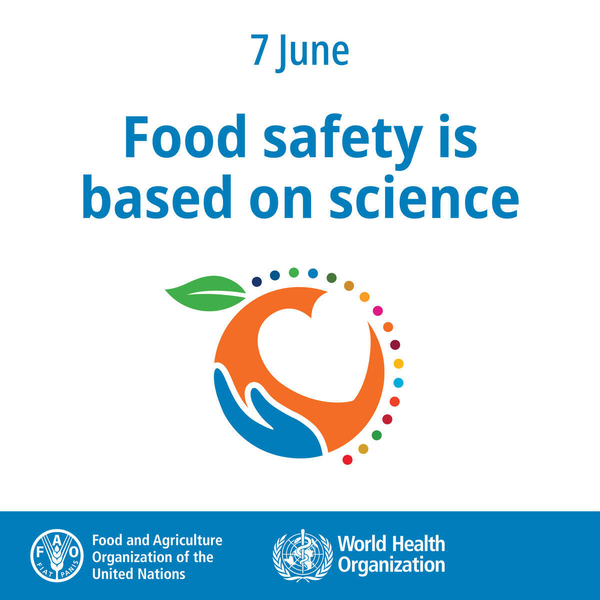Funded under the National Recovery and Resilience Plan (NRRP), Mission 4 Component 2 Investment 1.3, Theme 10.
Food Safety: A Daily Commitment to Global Health. OnFoods’ Scientific Contribution on World Food Safety Day
Today, 7 June, we join the global call to action for World Food Safety Day — a reminder that safe food is essential for health, development and trust in our food systems.
According to the World Health Organization (WHO), every year around 600 million people — almost 1 in 10 globally — fall ill due to contaminated food, with more than 420,000 deaths, including 125,000 children under five.
Foodborne diseases are usually caused by bacteria, viruses, parasites or chemical substances that enter the body through contaminated food or water. Some hazards, such as pathogenic microorganisms, are living and dynamic: “We cannot see them, but they move, multiply, and can be carried by animals or humans,” the WHO warns. “Science helps us understand the conditions that manage and mitigate the risks these microorganisms may pose.”
Food safety risks can emerge at any point in the chain — from production and distribution to home storage — and may be caused by poor hygiene, improper packaging or unsafe temperatures. “Avoid the danger zone,” experts advise, referring to the 5°C to 60°C range in which bacteria multiply rapidly. Perishable food should be kept refrigerated or cooked thoroughly to avoid contamination.
Recent events have shown that food safety remains a pressing challenge even in high-income countries. In 2011, Germany faced a serious outbreak of E. coli, with hundreds of infections and severe kidney complications. Similar outbreaks were recorded in the United States and Canada in 2018, linked to ready-to-eat salad products. In Italy, in 2019, the presence of Listeria monocytogenes in batches of frankfurter sausages led to product recalls in multiple regions. According to the One Health report published by EFSA and ECDC, in 2020, Salmonella was the most widespread foodborne pathogen in Europe, responsible for nearly 700 outbreaks.
Chemical contaminants pose more insidious, long-term threats. "Some compounds, even at low doses, can accumulate in the body and increase risk over time," says Professor Maria De Angelis, Professor of Agricultural Microbiology at the University of Bari and coordinator of Spoke 3 in the OnFoods partnership, funded by Italy’s National Recovery and Resilience Plan (PNRR). “Therefore, it is crucial to carefully monitor substances such as Pfas or microplastics, which can also enter food through packaging, but also to ensure proper storage conditions, from the refrigeration counter to the home refrigerator.”
Spoke 3 focuses on emerging contaminants, novel food safety, and improving risk assessment tools. “The food we eat is not just nourishment — it can be considered a form of medicine for preventing chronic diseases,” De Angelis states. “That’s why food safety is crucial for addressing the challenges of our time.”
Spoke 3 also studies how new technologies and a multidisciplinary approach — combining microbiology, analytical chemistry, molecular biology and bioinformatics — can make food safety systems more reliable and responsive. “The challenges are too complex to be solved by one field alone. Only by working together can we provide effective answers,” De Angelis explains.
In addition to health, the economic impact of unsafe food is significant. In low- and middle-income countries, foodborne diseases cost over $110 billion annually due to lost productivity and healthcare expenses. Investing in consumer education, hygiene, and food safety innovation can offer high returns — up to tenfold for each dollar spent.
On the occasion of World Food Safety Day, OnFoods reaffirms its commitment to “generating knowledge, collecting data and promoting a shared culture of safety,” putting scientific research at the service of public health, food systems and society. Because, as the saying goes, “without science there is no safety — and without safety, there is no future for our food.”




